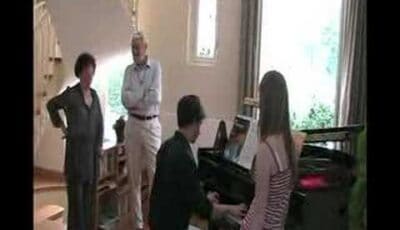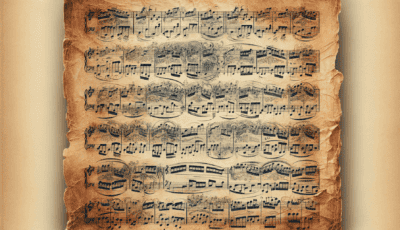-
Chopin – Revolutionary Étude, Op. 10, No. 12
Chopin’s “Revolutionary” Étude, also known as Étude Op. 10 No. 12 in C minor, is a solo piano piece composed by Frédéric Chopin in 1831. It is part of his…
-
Chopin Revolutionary Etude, Op. 10-12, Performed by Aya Nagatomi
Aya, 19, plays Chopin’s “Revolutionary” Etude op.10-12 on Studio R. Visit http://www.aya-nagatomi.com….
-
Seong-Jin Cho Performs Chopin’s Revolutionary Etude, Op. 10, No. 12
Seong-Jin Cho plays Etude in C Minor, Op. 10 No. 12 by Chopin, often called “Revolutionary Etude.”…
-
Chopin Revolutionary Étude, Op. 10, No. 12
Recorded Chopin’s “Révolutionnaire” at family party, apologies if it sounds blurry. Check out Pirates of the Caribbean and Requiem for a Dream soundtracks….
-
Exploring Classical Music by Century- Five Works from Each Era
…125, “Choral,” represents a groundbreaking moment in classical music history. The inclusion of a choir in the final movement, singing Friedrich Schiller’s “Ode to Joy,” was a revolutionary move that…
-
Richard Wagner
…the Future” and “Judaism in Music”. These writings not only reflected his revolutionary concept of opera as a “total work of art” but also showcased his controversial anti-Semitic views. Wagner’s…
-
Gioachino Rossini’s William Tell Overture on Guitar
…Sam Parkinson. Pete plays all four movements on acoustic guitars, sometimes double-tracked or triple-tracked. The overture begins with the ‘Prelude’, originally written for cello. William Tell was a 14th-century revolutionary….
-
Giovanni Gabrieli
…use of dynamics, specifically notated instrumentation, and his creation of musical color and orchestration were revolutionary. Notably, the Sonata pian e forte, one of the first compositions to employ dynamic…
-
Bedřich Smetana
…prominent composers of the time. The first was Hector Berlioz, whose revolutionary works, particularly the Symphonie fantastique, left a profound impact on him. The second was Franz Liszt, whose music…
-
Aaron Copland
…inspired him to venture beyond convention. The vibrant arts scene of Paris in the 1920s, brimming with revolutionary artists, writers, and intellectuals, further influenced his creative vision. During his years…
-
Camille Saint-Saëns
…an approach that was both revolutionary and controversial at the time. Despite the short duration of his teaching career, Saint-Saëns’ influence on his students was profound. Among his pupils was…
-
Antonio Vivaldi
…Mantua, is considered a masterpiece that beautifully represents the seasons of the year. These concertos were revolutionary in their musical conception, depicting an array of scenes from singing birds and…












